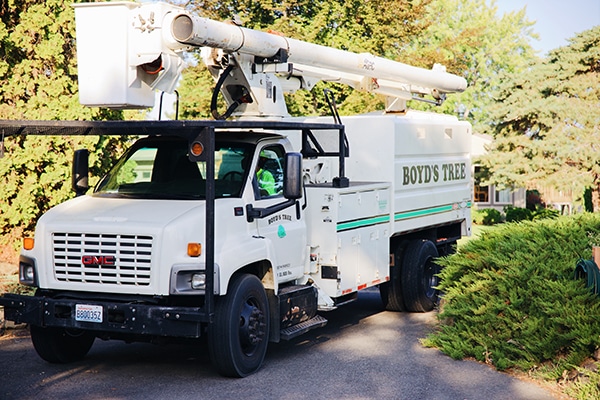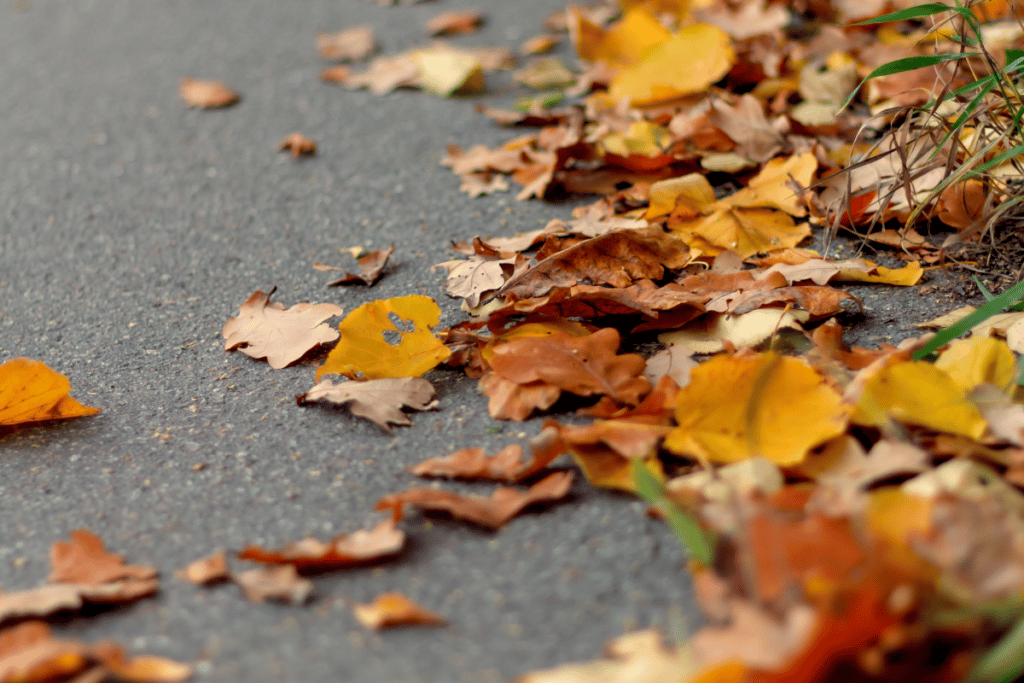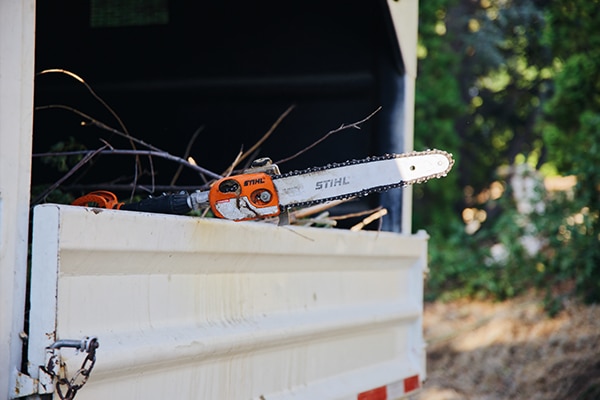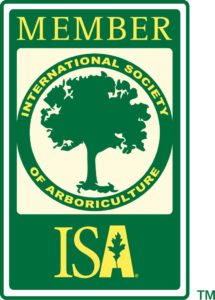Will Your Insurance Offer Tree Removal Coverage?
It is one of the last things you expect to happen, but one of your trees could fall someday, and whether it falls on your house or other covered structure, or onto your front yard, could be the difference between calamity and just another yard task to complete.
After making sure all your loved ones are safe and your house is alright, you might begin to wonder who will pay for the fallen tree to be removed. After all, it is an ambitious and potentially very expensive undertaking to remove a tree. Would your homeowner’s insurance cover the cost of taking away this dead tree?
As you might expect, it is not a simple “yes” or “no” answer. It depends on the cause of the felled tree, its condition, and what it falls onto.
For a quick cost analysis of how much tree removal services usually cost, check out this guide!
When Homeowners Insurance Will Cover the Cost of Tree Removal
Everything initially hinges on what caused the tree to topple. For example, if fire and smoke, lightning, falling objects, and the weight of ice, snow, or sleet caused your tree to come down, your policy should cover the cost of damages. These causes are known as “named perils” you typically will not have to cover the expense of removing your tree.
Your homeowner’s insurance also covers the tree removal cost if it came down as the result of a windstorm, and malicious acts such as theft and vandalism. A standard policy also covers debris removal, including the removal of fallen trees, as long as the tree fell because of one of these perils. However, there is one glaring stipulation. The fallen tree must have landed on your house or other covered structure on your property in order for your homeowner’s insurance to pay for the tree removal.
The downed tree, for instance, must have caused damage to your house, or other covered structure – that is insured – on your property or blocked access to your home. In contrast to this, if the felled tree simply lands on your front lawn without damaging anything, your insurer will likely not cover the cost of tree removal. If the tree falls onto your home, garage blocks your driveway – or any of these scenarios – your insurer will probably reimburse you for the removal of the tree and any damage it caused.
Other Cases When Homeowners Insurance Does Cover Tree Removal
There are certain, and very few, “named perils” that could allow for your insurance to cover tree removal even if the downed tree did not land on an insured covered structure on your property. For example, a tree on your front lawn is struck by lightning and splits in half. Even though there is no damage to your home, your insurance would be obligated to pay. Why is that? Because with most standard policies, any damage on your property due to fire or lightning, explosion, riot, vandalism, or an aircraft falling on your property is covered no matter what!
In essence, there is a subtle distinction among the different types of named perils that cause a tree to fall. Again, the removal of a tree anywhere on your property will be paid for by your insurance if the damage is caused by fire, lightning, or any of the perils above. However, if it is caused by a snow or wind storm, hail or ice, the coverage only extends as far as your structures are impacted.
When Tree Removal is Not Covered by Homeowners Insurance
As mentioned earlier, tree debris removal costs will not be covered by your homeowner’s insurance if it is caused by wind or snowstorms, hail or ice, and does not fall on a covered structure, such as your home or garage. If the tree falls onto your lawn, you will probably have to cover the cost of removal yourself.
Another scenario whereby the cost of tree removal is excluded includes Regular HO-3 (the most common type of policy) homeowners insurance which will not cover damage due to flood or earthquake. For example, if you live in a flood plain, or reside in an area that experiences frequent earthquakes, you will need either an additional policy or a rider on your existing policy that covers damages due to these circumstances. So if a tree has to be removed based on a flooding event, your standard policy will not cover the cost.
Tree removal is not covered under your standard homeowner’s insurance if rot or old age or disease caused the tree to come down. For example, if your tree shows signs of disease or old age, and there is evidence of deterioration, you will more than likely have to foot the bill for tree removal.
Even if a tree falls as a result of a covered named peril, but an insurance adjuster finds that the tree was damaged or rotten before the tree came down, the insurance company may deny liability for payment. This is because it is considered the responsibility of the homeowner to observe disease or decay on a tree and address it before the tree falls.
What About Your Neighbor’s Tree Falling onto Your Property?
You will likely be covered if your neighbor’s tree topples over onto your property, as long as it was caused by one of the named perils, and landed onto an insured covered structure, such as your house or garage.
In short, if the fallen tree originated on your neighbor’s property, you are covered against any peril that you are insured against in the personal property provision in your policy, and this includes fire, lightning, wind, the weight of snow or ice, vandalism, and explosions.
Let Boyd’s Tree Service Help Keep Your Trees Healthy and Thriving
At Boyd’s Tree Service, we are a full-service tree and stump removal business that serves the Tri-Cities and surrounding areas. We pride ourselves on always making sure the trees in our communities are healthy and beautiful.
You’ll find that at Boyd’s Tree Service – comprised of fourth-generation tree men – we provide the most comprehensive tree care. We take pride in enhancing the well-being, beauty, and aesthetics of your trees.
If you live in the Tri-Cities and surrounding areas and you would like more information about our tree services, or to schedule an appointment, we invite you to call Boyd’s Tree Service at (509) 585-4194.







